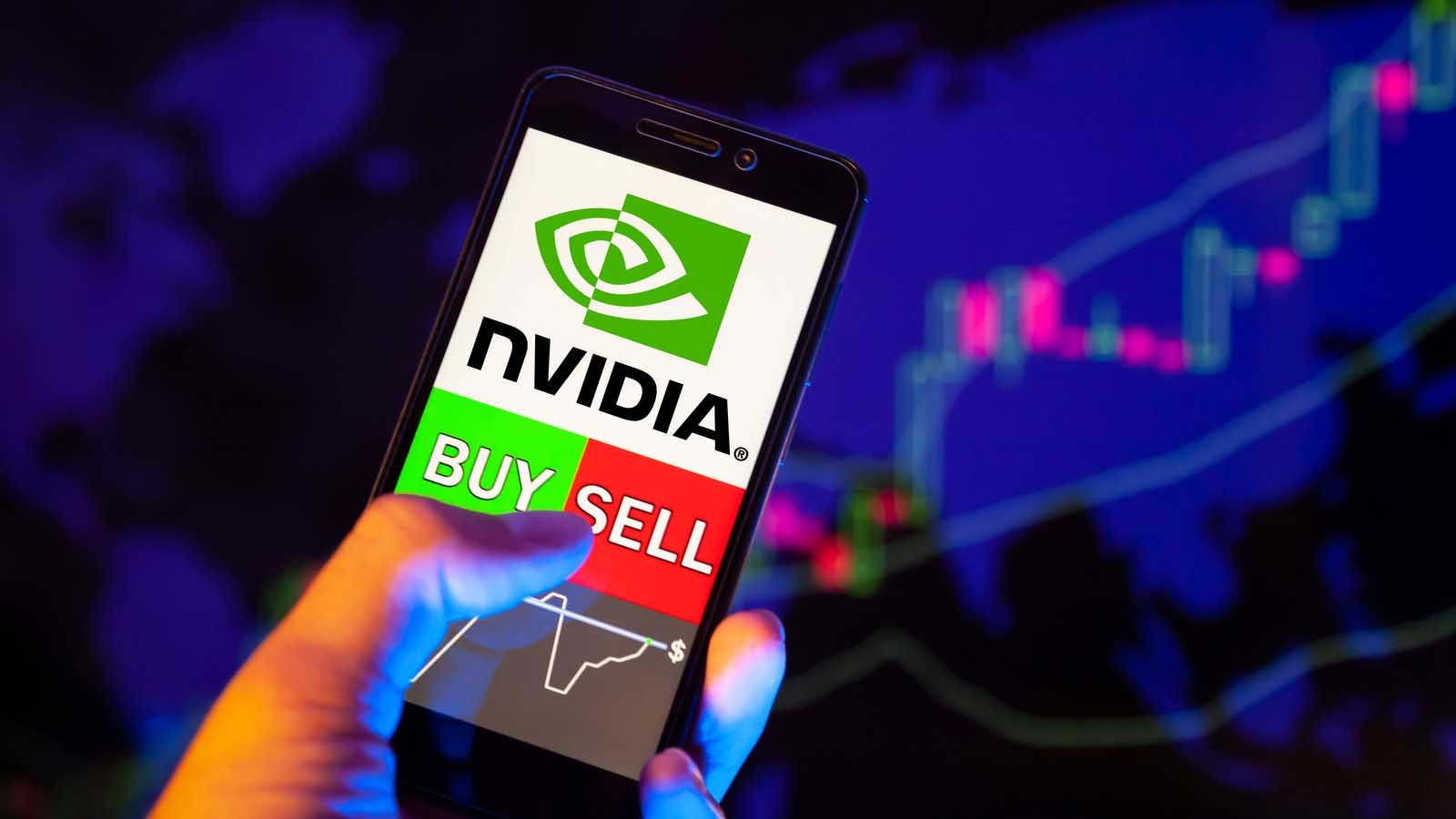Value investing and growth investing are two very popular strategies for investing in stocks. Nvidia (NASDAQ:NVDA) is a stock that can be easily fit in the growth stocks theme, but not value stocks. NVDA stock is trading at around $200 per share. The stock is up about 53% in 2021. But is it time to buy now NVDA stock?

I included Nvidia in a recent article titled “4 Cloud Gaming Stocks to Buy for the Coming Boom” writing specifically about Nvidia’s cloud gaming service, GeForce Now. But I considered it as an important stock overall back then. And honestly, I still consider NVDA stock to be important, with a lot of future growth.
But there is one problem that is too important to ignore — the lofty valuation.
NVDA Stock’s Valuation Is Too Pricey
Nvidia trades at over 24x expected 2021 revenue and according to Zacks, it has a forward P/E ratio of 50.3 and a PEG ratio of 2.92.
According to CSIMarket a quick comparison of Nvidia’s PE Ratio, Price to Sales Ratio, and Price to Book Ratio with the relevant financial ratios of the technology sector and the semiconductors industry, the ones that Nvidia is classified in, show that on a relative valuation NVDA stock is expensive.
The PE Ratio (Q1 TTM) for NVDA is 132.75, while for the industry and sector those numbers are 36.54 and 40.67 respectively. The Price to Sales (Q1 TTM) ratio for Nvidia is 37.33 and for the industry and the sector is 7.3 and 7.4 respectively. Finally, the Price to Book (Q1 MRQ) ratio for Nvidia is 26.84 and for its industry and sector is 7.3 and 10.2 respectively.
However, Zacks estimates an expected EPS growth for the next 3-5 years of 17.21%. So you can see, Nvidia is a growth stock but as mentioned above not a value stock.
Business News
Nvidia agreed to buy Arm Holdings, one of the world’s largest chip designers, for $40 billion from SoftBank last September. This is very important news because if this acquisition occurs Nvidia will have a dominant position in the semiconductors industry. However news on Barron’s that “The U.K. is considering blocking Nvidia’s $40 billion acquisition of chip designer Arm because of potential national security risks, according to a report on Tuesday.” That means that there could severe hurdles for this strategic acquisition to materialize. Some key factors include antitrust probes and possible opposition from rival chipmakers.
Plus there has been news that “British regulators are reportedly concerned about potential national security risks, according to Bloomberg.”
National security risks are a factor that could make it really difficult and very lengthy to complete the purchase of Arm Holdings.
The Global Chip Shortage
Nvidia has delivered a sales growth of 52.73% in 2021 of $16.68 billion compared to revenue of $10.92 in 2020 amid a global chip shortage. This is very impressive and positive for NVDA stock.
The question to ask is whether the global chip shortage will impact the ability of Nvidia to meet the market’s demand for new chips. Today, almost everything related to technology needs chips, including memory chips, microprocessors and graphic processing units (GPUs).
But an article posted on Data Centre Dynamics mentioned that “Semiconductor designers and manufacturers have warned that the global semiconductor shortage could stretch to 2022 or 2023, despite billions in fab investments. Taiwan Semiconductor Manufacturing Co (TSMC), Intel, and Nvidia said that they expected the crisis to drag on for a couple of years, as new plants take time to come online.”
And the bottom line was that “It’s going to get a little better, but the problem won’t go away for a while.”
So this global chip shortage is expected to have a negative effect, with an unknown yet severity on Nvidia’s long-term growth and its revenue, profitability.
Financial Results Q1 2022
The company announced very strong quarterly financial results for Q1 2022. Revenue rose 84% to $5.66 billion, while gaming revenue in specific more than doubled, to $2.76 billion. Meanwhile, Record Data Center revenue surged 79% to $2.05 billion year over year.”
Also, it is worth mentioning that “GAAP earnings per diluted share for the quarter were a record $3.03, up 106 percent from a year ago and up 31 percent from the previous quarter. Non-GAAP earnings per diluted share were $3.66, up 103 percent from a year earlier and up 18 percent from the previous quarter.” And the management expressed optimism for these results as expected.
“We had a fantastic quarter, with strong demand for our products driving record revenue,” said Jensen Huang, founder, and CEO of Nvidia.
Stock Spit: Nothing that Changes Valuation
Nvidia had a 4:1 stock split that became effective July 20, 2021. This stock split did not change the valuation of the stock at all, it only made the stock price lower. And if you thought the stock was expensive before the stock split, it should have remained expensive after the stock split as well — the intrinsic value was also adjusted according to the number of shares outstanding. The overall valuation of the company and as expected the value of each shareholder’s stake remained the same after this stock split.
Overall, Nvidia has many high qualitative features related to its financial performance. Morningstar mentions a three-year average growth for revenue, net income, and EPS of 19.74%, 12.44%, and 12.7% respectively. Impressive numbers.
The one thing that I do not like about NVDA stock is unfortunately what matters most, its valuation, which is too high. A very crucial factor that summarizes my financial analysis on Nvidia. Yes, growth seems positive enough, but the price is just too high for right now.
On the date of publication, Stavros Georgiadis, CFA did not have (either directly or indirectly) any positions in the securities mentioned in this article. The opinions expressed in this article are those of the writer, subject to the InvestorPlace.com Publishing Guidelines.
Stavros Georgiadis is a CFA charter holder, an Equity Research Analyst, and an Economist. He focuses on U.S. stocks and has his own stock market blog at thestockmarketontheinternet.com/. He has written in the past various articles for other publications and can be reached on Twitter and on LinkedIn.
